This is not simply a matter of equipping machines, but also a complex process, involving technology, organization, social psychology and especially fairness as well as the whole society's trust in the exam.
NOT JUST HAVING A DEVICE MEANS ORGANIZING A COMPUTER-BASED EXAM
A common misconception is that all you need is computers and software to run an online exam. In fact, equipment is just the starting point. The success of a digital exam depends on the ability to operate the system, handle problems quickly, ensure stable transmission, control data, and especially carefully prepare human resources.
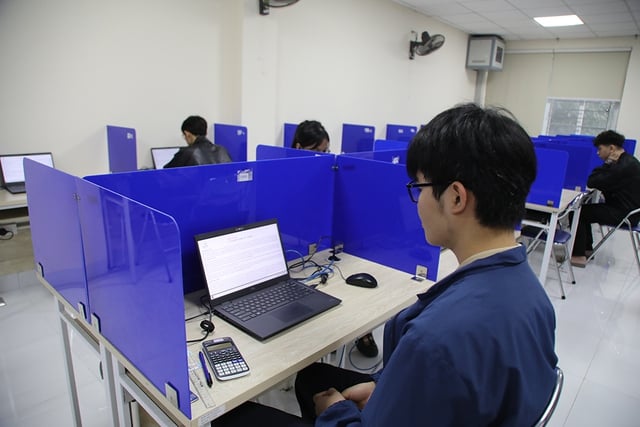
VN has implemented many exams on computers. These will be necessary experiences to implement the plan for high school graduation exams on computers.
PHOTO: THUY DUONG
In Kenya, the Grade 9 entrance exam was controversial when rural students had to use phones borrowed from adults to take the exam, while urban students took the exam on computers in a lab. This led to a disparity not only in results but also eroded confidence in the fairness of the exam.
Even in the US, Indiana experienced a system failure that caused thousands of students to be interrupted during their exams. This shows that modern software is not enough, but also requires a fast-response technical team, emergency support mechanisms and effective backup.
For Vietnam, it is important to invest in equipment, along with building a comprehensive, safe and stable exam ecosystem, from software to people.
Computer-based exams not only pose problems for infrastructure but also for the skills and psychology of candidates. Many students, especially in rural areas, do not have early access to computers and are not familiar with typing, using the mouse or handling software, which puts them at a disadvantage compared to their peers in urban areas.
In France, when piloting the electronic baccalaureate exam, rural students were confused with operations such as saving papers and correcting spelling mistakes. Meanwhile, urban students, who were proficient in using computers, completed the test faster and more effectively, although their learning ability was not necessarily superior. This difference does not stem from knowledge but from access to technology.
In India, the leaking of exam papers on social media between exam sessions has caused a huge controversy. This shows that without simultaneous exams or a random question generation system, it will be very difficult to ensure fairness.
In Vietnam, to successfully implement computer-based exams, digital skills must be standardized from secondary school level and infrastructure must be invested in evenly. At the same time, there must be a plan to organize exams in one session or create flexible questions, ensuring the same level of difficulty to create a fair playing field for all students.
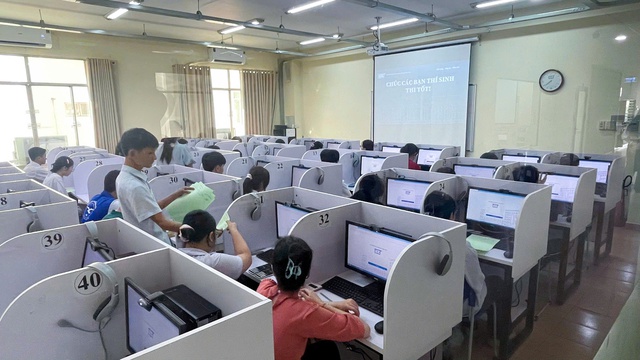
The specialized competency assessment exam of Ho Chi Minh City University of Education is also conducted on computer.
Photo: Ha Anh
B SECURITY AND FRAUD: SERIOUS ISSUES
Computer-based testing offers many benefits, but it also poses many risks in terms of security and cheating. As technology advances, cheating methods are becoming increasingly sophisticated: from tiny headphones, screen-simulating software, to artificial intelligence (AI) that supports real-time test-taking, and even targeted cyber attacks.
In Nigeria, a civil service exam was forced to be canceled after a system attack left thousands of candidates unable to log in. In the Philippines, candidates used screen-sharing software to get help during their teacher certification exam. These incidents show that online testing is not only a technical issue but also a security challenge.
Some countries like the UK and the US have applied webcam and AI surveillance to ensure honesty, but have also faced privacy concerns from parents and students.
In Vietnam, large-scale computer-based testing still does not have a clear legal framework. The Ministry of Education and Training needs to soon issue specific regulations on security, monitoring, incident handling and publicizing the organization process to create social trust.
STUDENTS NEED TO BE FAMILIARIZED FROM EARLY
Vietnam is no stranger to computer-based exams. International IT and English exams, professional competency tests, and vocational certificates have used computers for many years.
In particular, the Hanoi National University's competency assessment exam or the Ho Chi Minh City University of Education's specialized competency assessment exam have been implemented on computers for many years. In 2025, Vietnam will also complete the PISA exam for more than 7,000 students using international software. This is a valuable foundation for gradually digitizing the high school graduation exam.
However, in reality, many students, despite being good at studying, are still confused and worried when taking tests on computers. Many students are afraid of software errors, losing connection, or simply are not used to the feeling of taking tests on a screen.
Even in Singapore (a country with a leading digitaleducation system), many students reported feeling uncomfortable writing long essays on computers. Some said that worrying about the computer crashing made them more stressed than taking a paper-based exam.
Therefore, the solution is to let students get used to it early. It is possible to organize small tests and mock exams on computers from grades 10-11. Creating conditions for students to get used to the interface and operations will help reduce pressure and reflect their true abilities. It is necessary to standardize digital skills early for students, from middle school they should learn computer skills such as typing text and processing multiple choice tests on software.
To successfully implement computer-based testing, Vietnam needs to avoid the mentality of chasing technology. It is not just a technical change, but a whole new way of thinking, requiring the coordination of many parties and putting the learner at the center. Some important principles to note:
Pilot selectively. Start in areas with good infrastructure, then expand step by step; evaluate effectiveness independently and transparently. Do not spread out but focus on building modern testing centers that can be used for multiple exams.
It is necessary to build a strong and diverse test bank and organize exams simultaneously nationwide to limit leakage. In addition, it is also necessary to explain to students, teachers and parents the benefits and risks of taking exams on computers, and at the same time provide guidance for adaptation.
Computer-based testing should not be used solely for the convenience of the organizers, or for the purpose of modernizing paper-based education. Any change is only meaningful if it helps students demonstrate their true abilities, ensures fairness, and reduces exam pressure.
From exam regulations, software, monitoring methods to analyzing results…, everything must revolve around the needs, conditions and psychology of students. If the learner is not placed at the center, the reform will easily fail.
Vietnam is facing a historic opportunity. If done correctly and systematically, computer-based testing will open a new era in educational assessment and analysis. However, if done hastily, without preparation and transparency, it can easily lead to many risks and loss of trust.
Not all subjects are suitable for computer-based testing.
One reality that needs to be faced is that not all subjects are suitable for complete digitization. Long essay subjects such as literature, or subjects that require drawings and formulas, still face many difficulties if tested entirely on computers.
In many countries such as Germany, Finland, and Japan, only a few multiple-choice subjects such as math, foreign languages, and history are tested on computers. Creative and essay subjects are still tested on paper or oral.
Therefore, computer-based testing should start with subjects that are highly multiple-choice, easy to monitor and grade, and then expand gradually based on practical assessment.
Source: https://thanhnien.vn/thi-tot-nghiep-thpt-tren-may-tinh-rao-can-lon-nhat-la-su-cong-bang-185250709185942015.htm





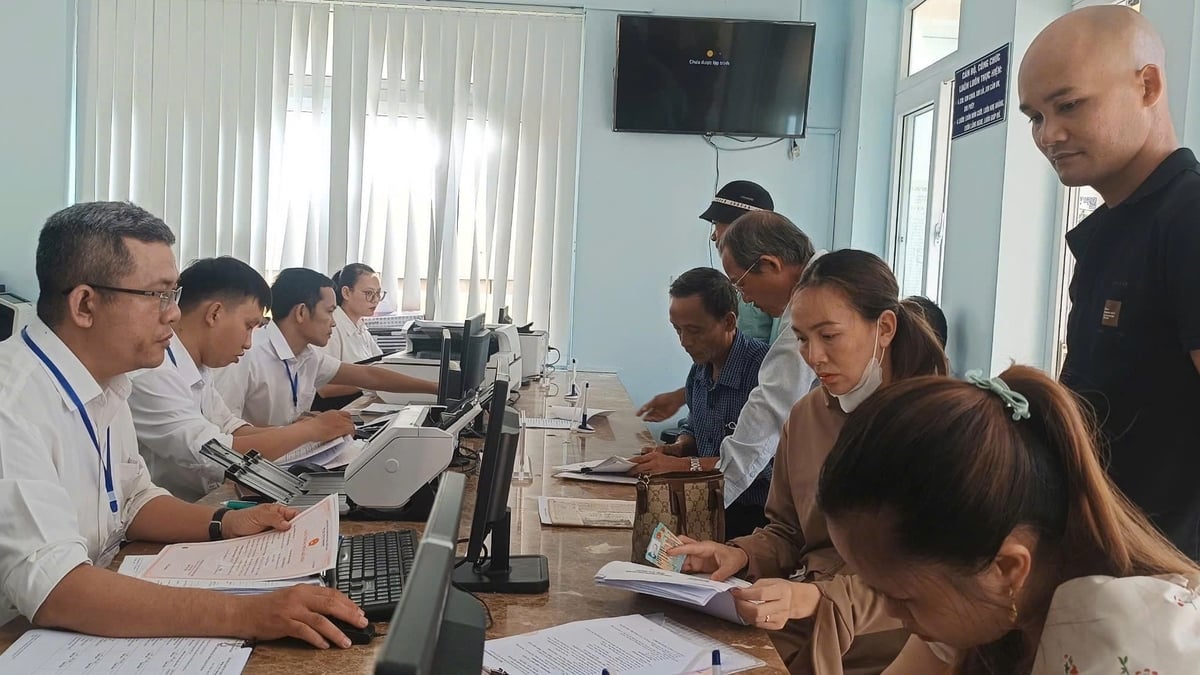
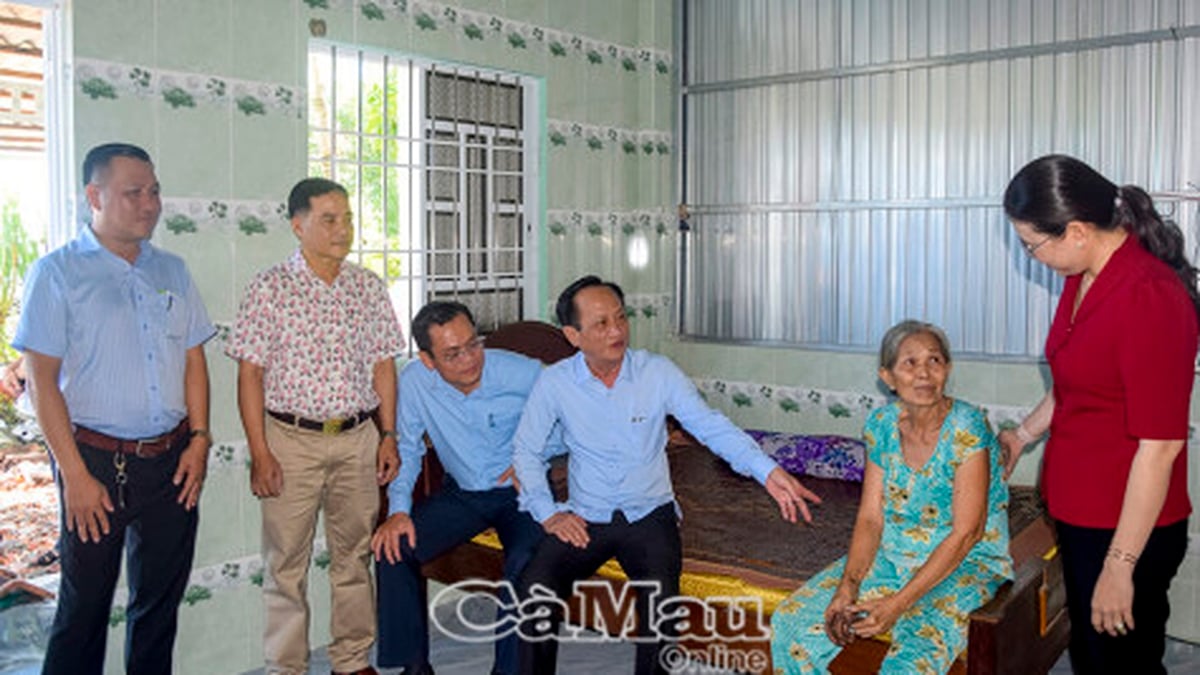
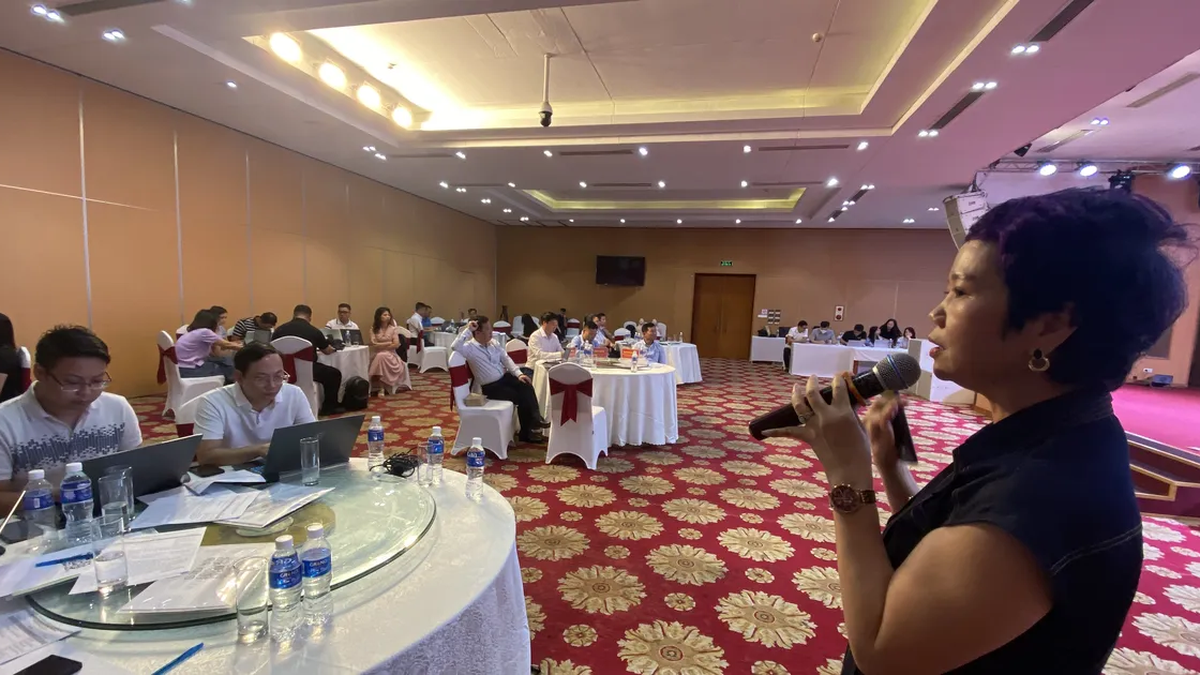















![[Photo] Gia Lai provincial leaders offer flowers at Uncle Ho's Monument with the ethnic groups of the Central Highlands](https://vphoto.vietnam.vn/thumb/1200x675/vietnam/resource/IMAGE/2025/7/9/196438801da24b3cb6158d0501984818)














































































Comment (0)